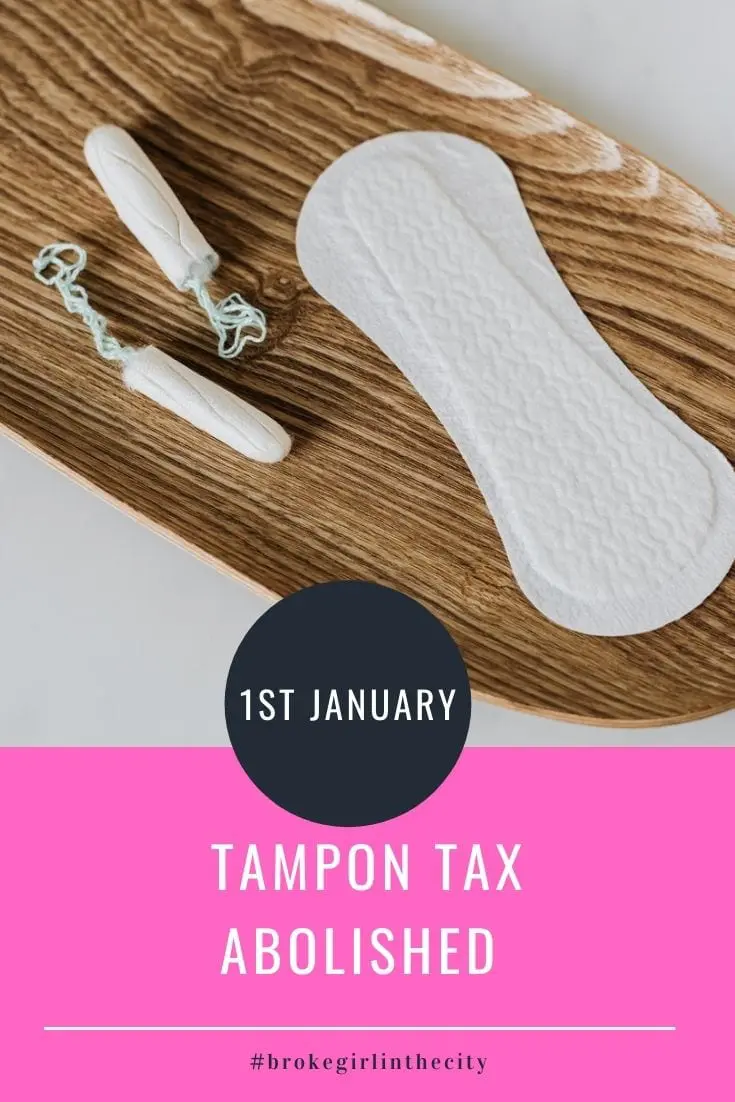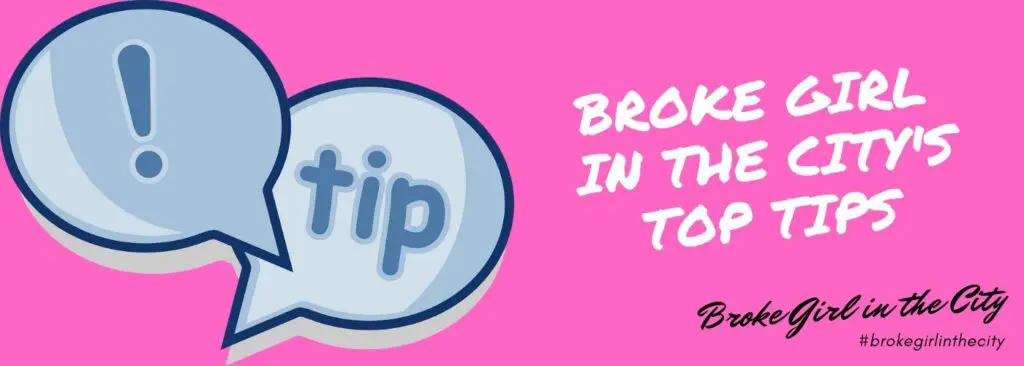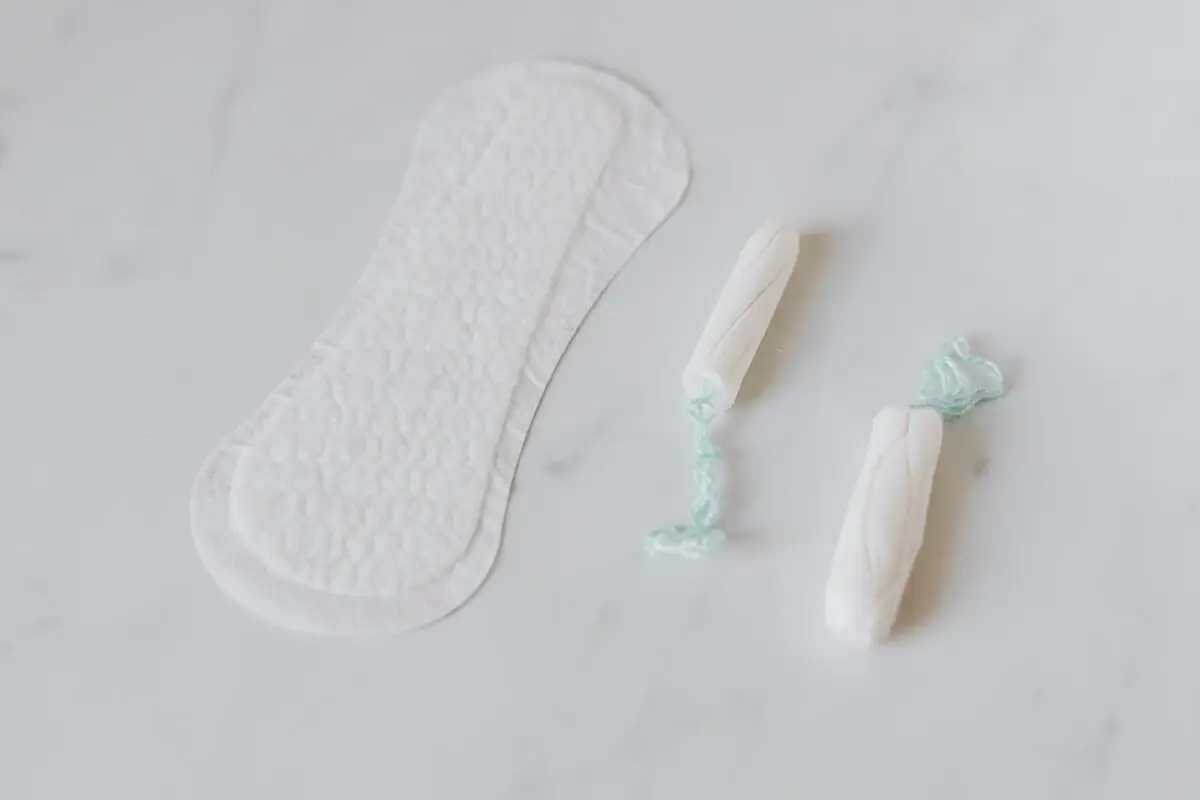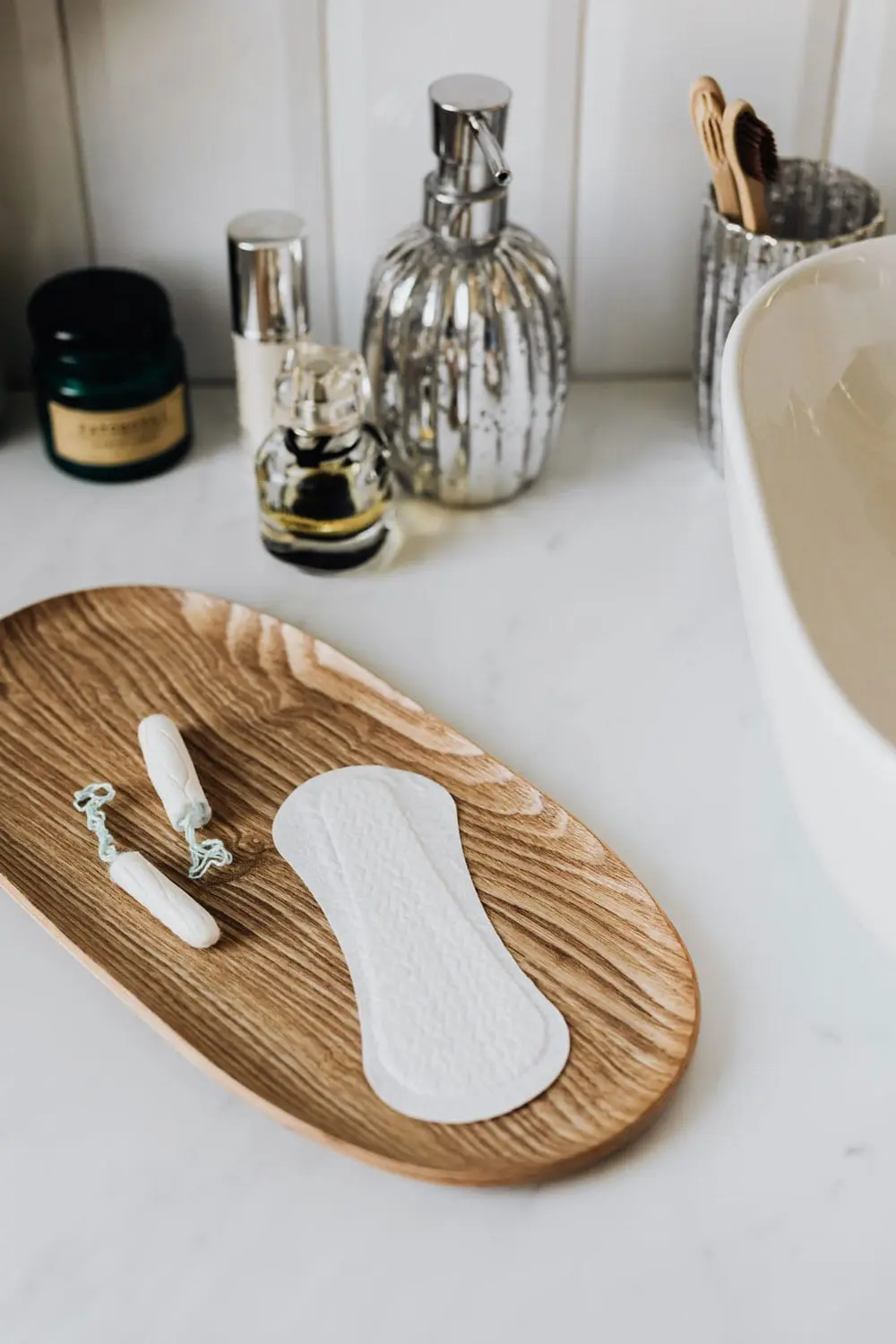
Controversial ‘tampon tax’ has been abolished
With a zero rate of VAT applying to women’s sanitary products coming into effect today (1 January 2021).
- 5% tampon tax abolished – from today (1 Jan 2021) VAT no longer applies to women’s sanitary products
- part of wider government action to End Period Poverty which includes the roll-out of free sanitary products in schools, colleges and hospitals
- the government says that the move has been made possible by end of the transition period and freedom from EU law mandating VAT on sanitary products
I’m proud that we are today delivering on our promise to scrap the tampon tax. Sanitary products are essential so it’s right that we do not charge VAT.
We have already rolled out free sanitary products in schools, colleges and hospitals and this commitment takes us another step closer to making them available and affordable for all women.
Chancellor Rishi Sunak
What is ‘period poverty’?
Many girls who can’t afford sanitary products are too embarrassed to talk about it, which has even led to skipping lessons. However, ‘period poverty’ isn’t just about schools. Many women are often unable to budget for sanitary products, whether this is because they are homeless, vulnerable, escaping domestic abuse. Women who are working often forgo sanitary products as part of their monthly shop, when faced with other demands on the family budget. Periods are a part of our lives, and buying products shouldn’t be a luxury.
Donate sanitary pads to food banks in the UK
Many women on low incomes are struggling to afford sanitary pads. The role of food banks has never been so necessary. As part of the UK Money Bloggers Reverse Foodbank Advent Calendar Campaign, I now do every year, I included sanitary products in the overall mix.

Sanitary products should be available for all women
The government stated that this commitment to scrap the tax is part of a wider strategy to make sanitary products affordable and available for all women which include:
- January 2020’s roll out of free period products for all young people in English state schools and colleges and extension of the scheme into 2021
- the NHS offering period products to every hospital patient who needs them (including long-term in-patients) since 2019
- the Tampon Tax Fund, established in 2015, which allocated the funds generated from VAT on period products to projects supporting vulnerable and excluded women and girls
The Chancellor announced that the tampon tax was to be abolished from 1 January 2021 at March 2020 Budget. As the transition period ended on December 31st, the UK is no longer bound by the EU VAT Directive which mandates a minimum 5% tax on all sanitary products.
Felicia Willow, Fawcett Society Chief Executive, said:
We warmly welcome the scrapping of VAT on all sanitary products from 1 January 2021 and congratulate the government on taking this positive step.
It’s been a long road to reach this point, but at last the sexist tax that saw sanitary products classed as non-essential, luxury items can be consigned to the history books.

How much do tampons cost now?
| Product | Cost (Overall) | Cost (each) | |
| Tesco | Tampax Regaular Tampons (20) | £1.90 | £0.10 |
| Tesco Free Spirit Tampons (20) | £0.95 | £0.05 | |
| Lil-Lets Non Applicator Tampons (16) | £1.75 | £0.11 | |
| Sainsburys | Tampax Regular Tampons (20) | £1.90 | £0.10 |
| Sainsbury’s Applicator Tampons (20) | £0.95 | £0.05 | |
| Lil-Lets Tampons (14) | £1.70 | £0.11 | |
| Superdrug | Tampax Regular Tampons (20) | £1.89 | £0.10 |
| Superdrug Regular (20) | £1.49 | £0.08 | |
| Boots | Tampax Regular (20) | £1.90 | £0.10 |
| Boots Regular Applicator Tampons (20) | £1.05 | £0.05 |
How much do sanitary towels cost now?
| Product | Cost (Overall) | Cost (each) | |
| Tesco | Bodyform Ultra Goodnight (10 Pack) | £1.20 | £0.12 |
| Tesco Free Spirit Ultra towels (10 Pack) | £0.66 | £0.05 | |
| Always Sanitary Towels with wings (10) | £1.50 | £0.15 | |
| Sainsburys | Bodyform Ultra Goodnight (10) | £1.20 | £0.12 |
| Sainsbury’s Ultra Towels (10) | £0.65 | £0.07 | |
| Always Sanitary Towels with wings (10) | £1.50 | £0.15 | |
| Superdrug | Bodyform Ultra Goodnight (10) | £1.55 | £0.15 |
| Superdrug Sanitary Towels (10) | £0.85 | £0.08 | |
| Boots | Bodyform Ultra Goodnight (10 Pack) | £1.00 | £0.07 |
| Boots Ultra Towels Night with wings (10) | £0.70 | £0.07 |
Verdict:
Branded items for both tampons and sanitary towels prove to be more expensive compared to the company’s own brand. I always go for the cheapest items in stock. Depending on whether you prefer tampons or sanitary towels, or like a mixture of both. Tesco has come out on top of this comparison study. It does pay to shop around and also look at the promotions on offer at the time, and also look at the options available.
The above comparisons have provided a snapshot of the sanitary products available when the Government made the announcement.

Where can you access free sanitary products?
While today’s announcement sees a UK-wide tax cut on sanitary products, the measures have already been introduced to tackle ‘period poverty’, although how wide-spread this has been adopted remains to be seen.
- English primary and secondary schools and colleges can order tampons, sanitary pads and menstrual cups, and make them available in schools.
- Scotland passed a law in November 2020 making it a legal requirement for schools, colleges and universities to provide free period products for students.
- The Welsh Government allocated funding in 2020 to offer students access to free sanitary products in primary and secondary schools.
The Tampax Tax Fund
The Tampon Tax Fund will continue to provide funding for projects supporting vulnerable women and girls. Charities supporting disadvantaged women and girls through the coronavirus pandemic and recovery are to receive £15 million from the latest round of the Tampon Tax Fund. Successful applicants to the £15 million funding for 2020/21 were announced last month.
Further information:
- The UK is therefore no longer legally bound by EU laws which have seen sanitary products subject to five different rates of VAT since 1973 – the latest of which was 5%, effective since January 2001.
- Although the UK was bound by the EU VAT Directive, Parliament approved the move to a zero rate, with a provision included in Finance Act 2016 for such an eventuality. The UK also established the Tampon Tax Fund in 2015 to donate money to charity equivalent to the amount of VAT revenue collected, with £47 million donated since then to charities working with vulnerable women and girls.
- The zero rate was legislated for in the Finance Act 2016, enabling the change to come in to force as soon as the UK has discretion to do so under its legal obligations.
- While the UK was a Member State of the EU, we were unable to apply any rate of VAT lower than a reduced rate of 5% to sanitary products because of the EU VAT Directive.
